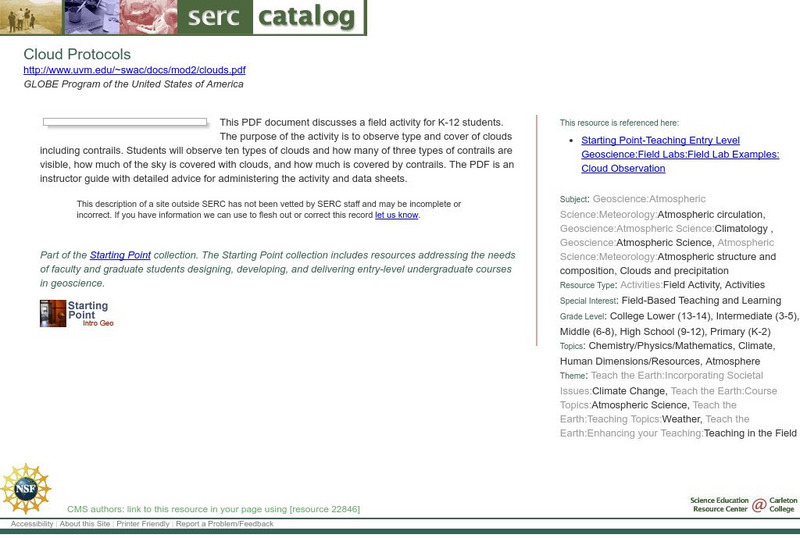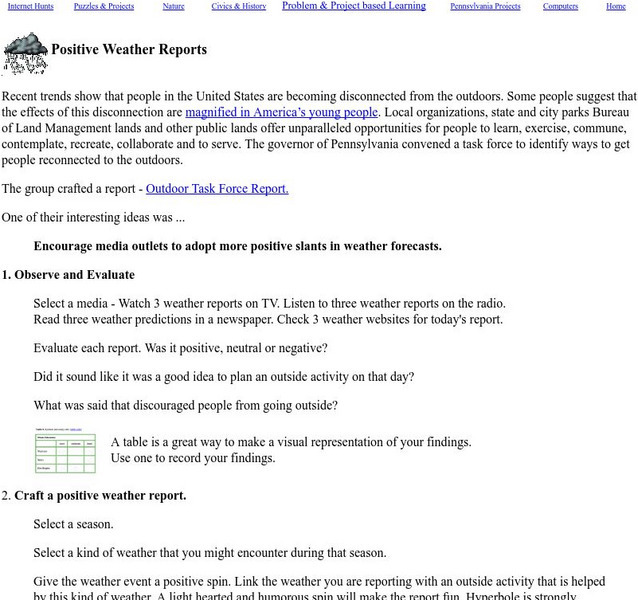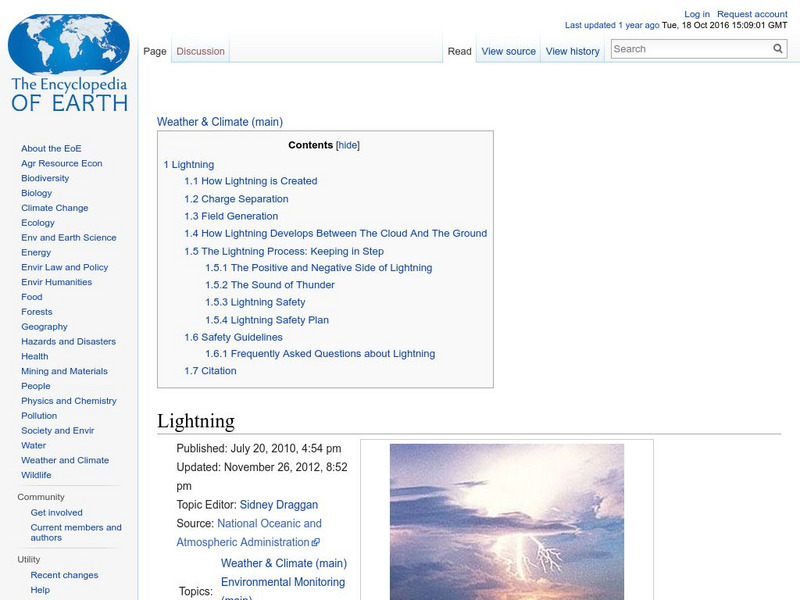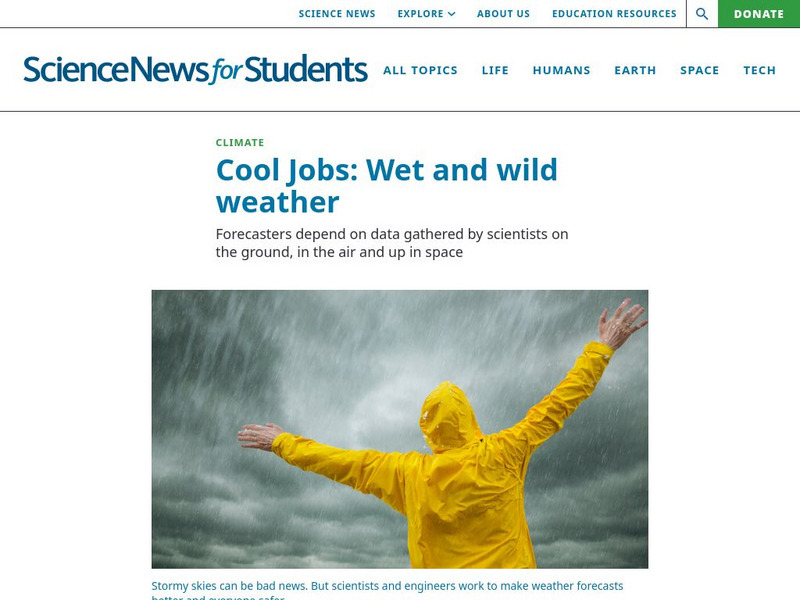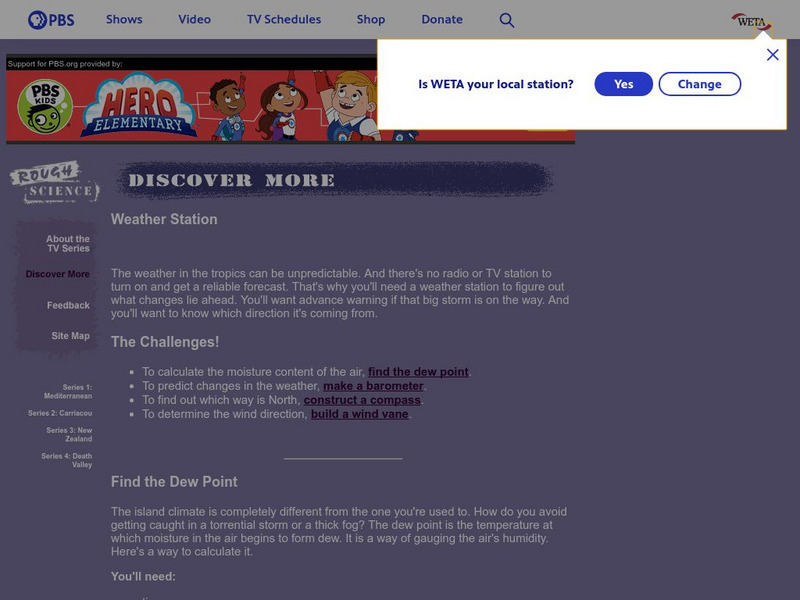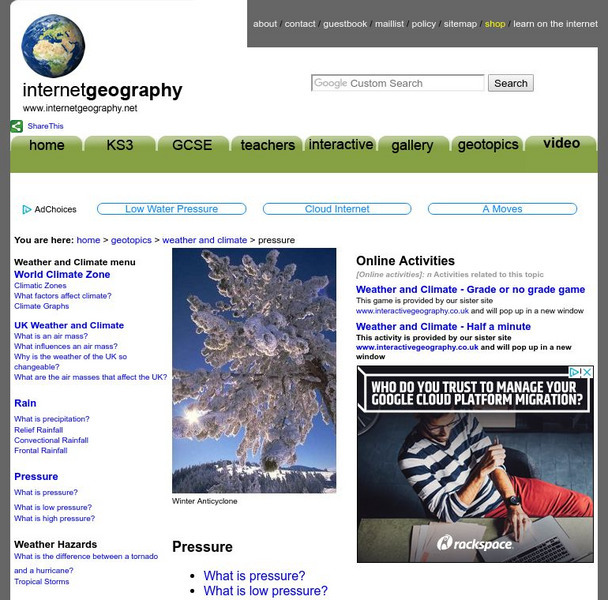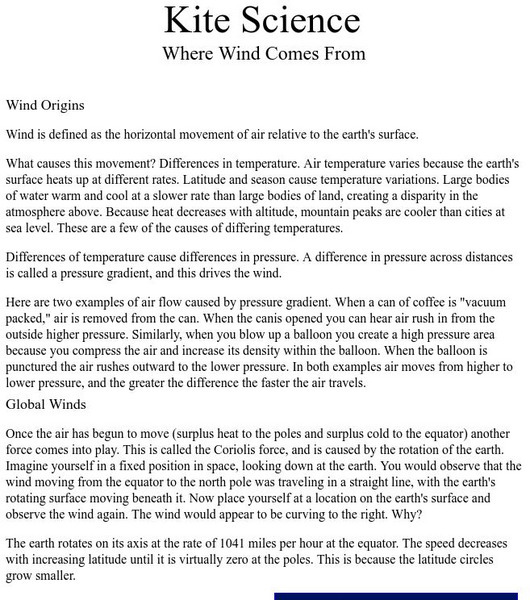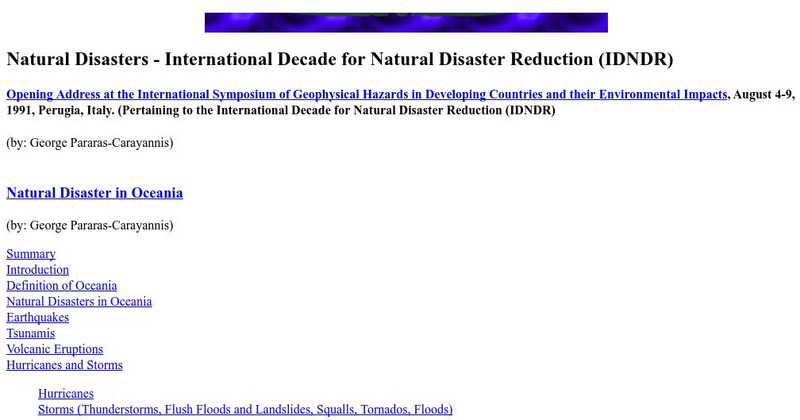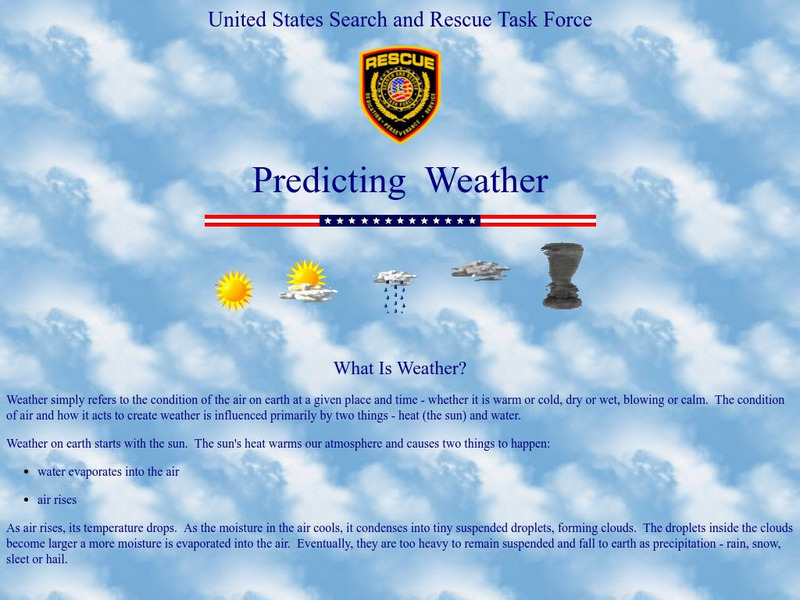Science Education Resource Center at Carleton College
Serc: Cloud Protocols
Students observe ten types of clouds and visible contrails, and determine how much of the sky is covered with clouds or contrails.
Museum of Science
Weather Tools
This site shows how to make weather tools for your own weather station. You can learn how to make a barometer, rain gauge, anemometer, wind scale tool, wind streamer, and wind chime.
Cynthia J. O'Hora
Mrs. O's House: Positive Weather Reports
After reviewing local weather reports, students will think about whether the presentation of the reports is driving folks to not participate in outdoor activities. The class will create new weather reports that will turn negative weather...
English for Everyone
Reading Comprehension Assessment: "Summer Rain" [Pdf]
Read Theory provides a free reading comprehension assessment that is designed for students in the high school grades. Five multiple choice questions and three extended response questions are included on thia nonfiction reading assessment.
Math Science Nucleus
I. Science Ma Te: Integrating Science, Math and Technology
This site offers a wealth of online textbook-related materials that encourage the discovery of science in the world around us. Enter the site to access material on specific topics. Each section contains reading material (complete with...
Encyclopedia of Earth
Encyclopedia of Earth: Weather & Climate: Lightning
Explains what lightning is, how it is created, what happens inside thunderstorms, how lightning develops during a storm, types of lightning, how individuals and groups can stay safe, chances of being struck by lightning, and answers to...
Society for Science and the Public
Science News for Students: Cool Jobs: Wet and Wild Weather
How's the weather? Forecasts rely on scientists and engineers who collect and interpret data gathered on the ground, in the sky and way up in space.
TED Talks
Ted: Ted Ed: How Did Clouds Get Their Names?
Richard Hamblyn tells the history of Luke Howard, the man who classified the clouds and forever changed humanity's understanding of these changeable, mysterious objects. [5:07]
Dan Satterfield
Dan's Wild Weather Page: Precipitation
Find out about what causes precipitation and perform activities that teaches how precipitation forms.
Dan Satterfield
Dan's Wild Weather Page: Hurricanes
Use this site to find out about hurricanes and how to track them.
PBS
Pbs: Rough Science: Weather Station
PBS asks users to imagine that they are in the tropics and need to get a reliable weather forecast. It provides instructions on how to build a wind vane, construct a compass, make a barometer and find the dew point.
Climate Literacy
Clean: Mauna Loa Co2 Collection Data
This data-intensive activity uses real world datasets to cover topics such as weather v. climate, air circulation around the globe, seasonal effects, and climate change.
Other
Pete's Potpourri: Numerical Weather Prediction in Faq
This site discusses weather forecast computer modeling, or numerical weather prediction (NWP). It also discusses the development of the concept of front and air masses, as well as which computer forecast models are currently being used...
Other
Internet Geography: Weather and Climate, Rain
This site defines precipitation, and uses diagrams to tell about relief, convectional, and frontal rainfall.
Other
Internet Geography: Geo Topics: Weather and Climate
This site explores air pressure and talks about high pressure. low pressure, and winter anticyclones.
Other
Internet Geography: Weather and Climate, Tropical Storms
Description of tropical storms and links to several case studies. This site includes information, such as how tropical storms are named, how they occur, and how they are structured.
Other
Real Audio en Espanol
A link to all the hispanic countries with their radio and TV stations available through RealAudio. With luck you may find a weather broadcast live on a station you're listening to. Interesting either way!
Other
Kites as Education: Wind Origins
This "kite science" site offers information on wind and the atmospheric conditions that cause it. From "Principles of Aeronautics."
Other
Idndr: The Tsunami Page
An international site dealing with natural disasters, crisis management, prevention & reduction. The INDR (International Decade for Natural Disaster Reduction) Office is the sponsor. Timely, specific information included.
Other
Cod/ Thunderstorms
You can link to single cell, multi-cell, and super cell thunderstorm pictures. Learn about the three stages of thunderstorms.
Other
University of East Anglia: Climatic Research Unit
This is a site from a university page of the University of East Anglia that is focused on climatic research. It offers links to information sheets, research areas, publications, and other climate links. Each of the information sheets...
Other
Scotland.com
Basic facts and travel information about Scotland. Information is available about business, community, travel, culture, news, sports, and shopping.
Other
World Climate
Find out what the climate is like in thousands of places all over the world. You'll not only get the climate, but the latitude and longitude as well!
Other
U.s. Search and Rescue Task Force: Predicting Weather
Information on what weather is to begin with, then progresses to how scientists can predict the weather. Common ways to predict weather are also included such as use of a barometer and rain gauge.


